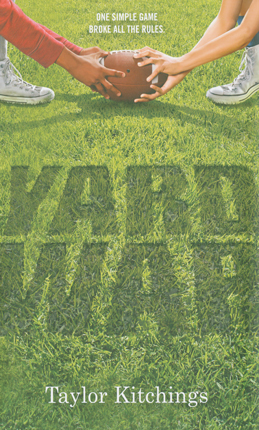Full Text Reviews: Booklist - 07/01/2015 Trip Westbrook wants to play football, so he invites his maid’s son, Dee, to join him. Dee is a fantastic player, and the boys strike up a friendship, but in 1964, their neighborhood isn’t ready to see races mix—even when playing football in the front yard. When Trip’s actions lead to threats on his family, he begins questioning the status quo. He wonders why he has to live by Mississippi’s unspoken rules and whether his elders are right in their beliefs. Kitchings’ debut offers a look at the civil rights movement from one boy’s perspective and reflects upon rights that people should have, no matter their race. Although there is some mild violence and the author uses some offensive language to reflect the times, Trip’s journey is a sensitive account about how one person can slowly make a difference. Things don’t turn out perfectly, but there is hope in the end, and that’s what really makes a difference. - Copyright 2015 Booklist. School Library Journal - 06/01/2015 Gr 4–6—It's the fall of 1964, just after the passage of the Civil Rights Act. Trip Westbrook lives with his parents in Jackson, MI. They have a black maid, Willie Jane, who serves as a sort of second mother to Trip and his sisters. When Trip invites Willie Jane's son, Dee, to join in for a game of football in the front yard, he unwittingly sets off a chain reaction of bigotry and harassment. But it's when he tries to bring Dee to lunch at the all-white country club that the tightly knit community turns inside out. This is an unusual book. There is a solid coming-of-age story and there is some football, though the cover design may throw off some readers: students who come looking for typical sports fiction might be disappointed. While a pick-up game is the occasion for the events that drive the plot, the sport itself is a small fraction of the story. At times the action is intense. True to usage at the time, Kitchings's narrator refers to African Americans as "colored" and "Negroes." The use of a more offensive epithet is limited, but does occur repeatedly. The scenes in which Trip is persecuted by the ignorant Bethune brothers (and their hateful father) are compelling and cringe-inducing. Nonetheless, the racist violence, verbal and physical, is historically significant and amount to a stinging indictment of the hypocrisies of the culture. VERDICT This is a challenging but worthwhile portrait of a very difficult period in American history.—Bob Hassett, Luther Jackson Middle School, Falls Church, VA - Copyright 2015 Publishers Weekly, Library Journal and/or School Library Journal used with permission. Loading...
|



